html
Jiangnan’s Spring Limited Food “Qingtuan”: The Little Secret Behind the Delicious Taste

As someone who grew up in the Jiangnan region, the food I looked forward to most every year during the Qingming period was qingtuan. This traditional snack, which encapsulates the taste of spring, is a shared taste memory of people in Jiangsu, Zhejiang and Shanghai. But what you may not know is that these small, fresh-looking green balls actually hide a lot of health secrets.
1. What is Qing Tuan?
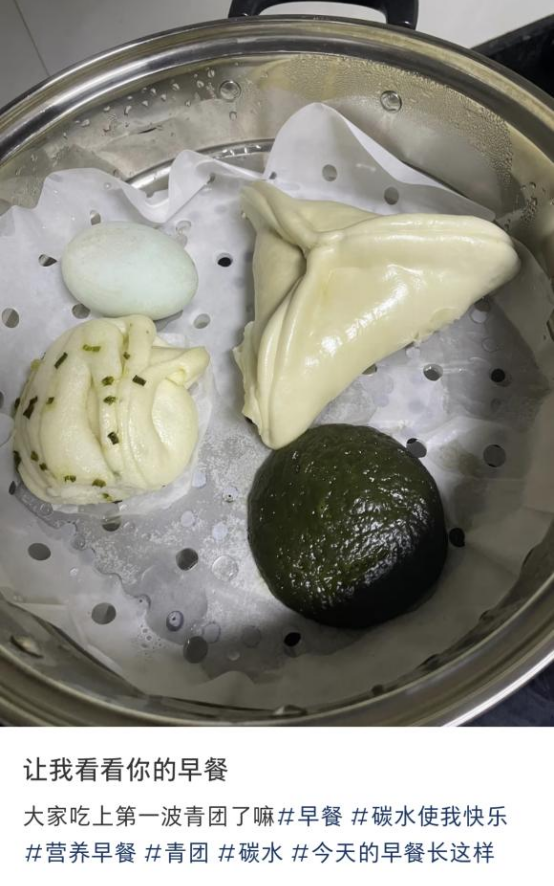
Qing Tuan is a traditional springtime snack from the Jiangnan region. The skin is dyed a greenish-blue color with fresh mugwort juice, and it contains either sweet or savory fillings. Common flavors include:
- Sweet fillings: red bean paste, black sesame, date paste
- Savory fillings: fresh meat and bamboo shoots, salted egg yolk and pork floss
In recent years, innovative flavors such as crayfish and taro paste with cheese have also become popular. Essentially, qingtuan is a glutinous rice product made with glutinous rice flour, which is used to wrap various fillings. Freshly steamed qingtuan has a light fragrance of mugwort and is soft and chewy, making it irresistible.
2. Digestion Challenge: A Common Issue for Glutinous Rice Products
2.1 Properties of Amylopectin
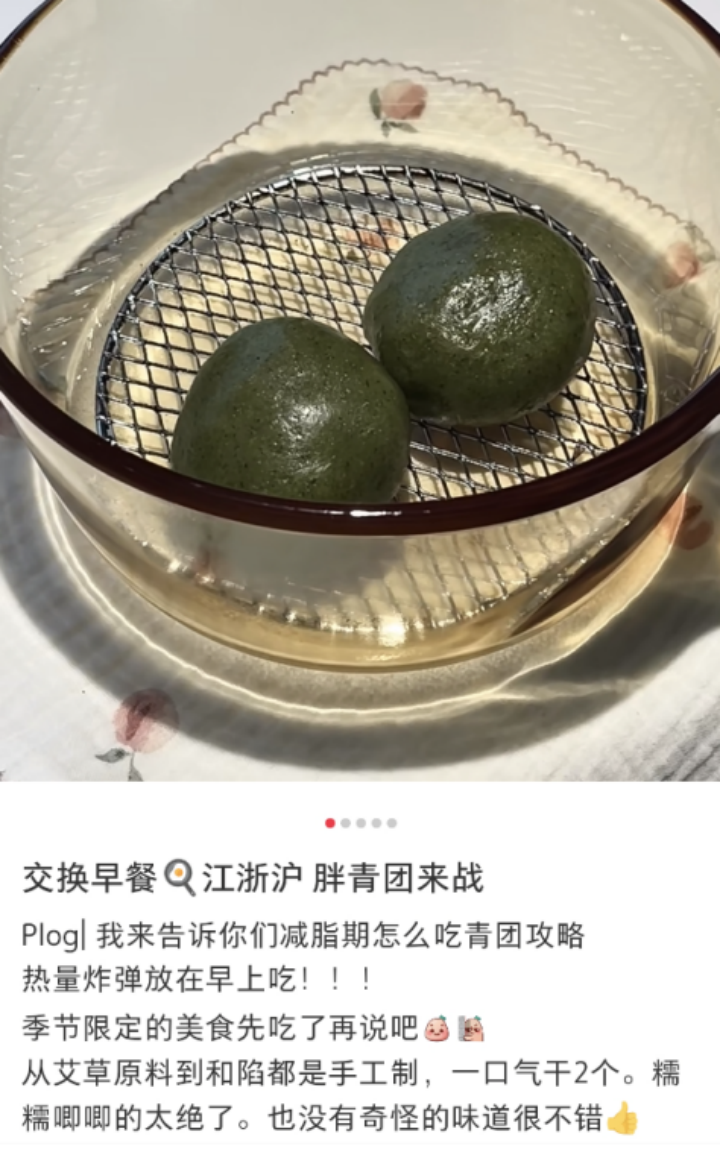
The main ingredient in the skin of qingtuan is glutinous rice flour, which contains abundant amylopectin. This starch forms a very viscous structure when heated:
- Easily digestible when hot
- Becomes stickier and harder to break down when cooled
2.2 Modern Eating Habits Exacerbate Digestion Issues

Many qingtuan products are designed for cold consumption:
- Cold qingtuan is 30% stickier than hot ones
- Harder for stomach to break down into small particles
- Digestive juices have difficulty penetrating the food matrix
2.3 Combined Effect of Fillings

Modern fillings often contain:
- High-fat ingredients: salted egg yolk, fatty meat, cheese
- High-sugar options: taro paste, custard
The combination creates a “complex food” requiring extended processing time by intestines.
3. Calorie Reality: Small Size, Big Energy

Analysis of popular e-commerce products (per 60g):
| Flavor | Calories (kcal) | Equivalent Running Time |
|---|---|---|
| Red bean paste | 198 | 25 minutes |
| Black sesame | 228 | 30 minutes |
| Salted egg yolk & pork floss | 353 | 45 minutes |
| Custard | 387 | 50 minutes |
Visual comparison:
- 1 salted egg yolk qingtuan ≈ 2.3 bowls of rice
- 3 standard qingtuan ≈ adult meal calorie requirement
4. Homemade Doesn’t Mean Healthier
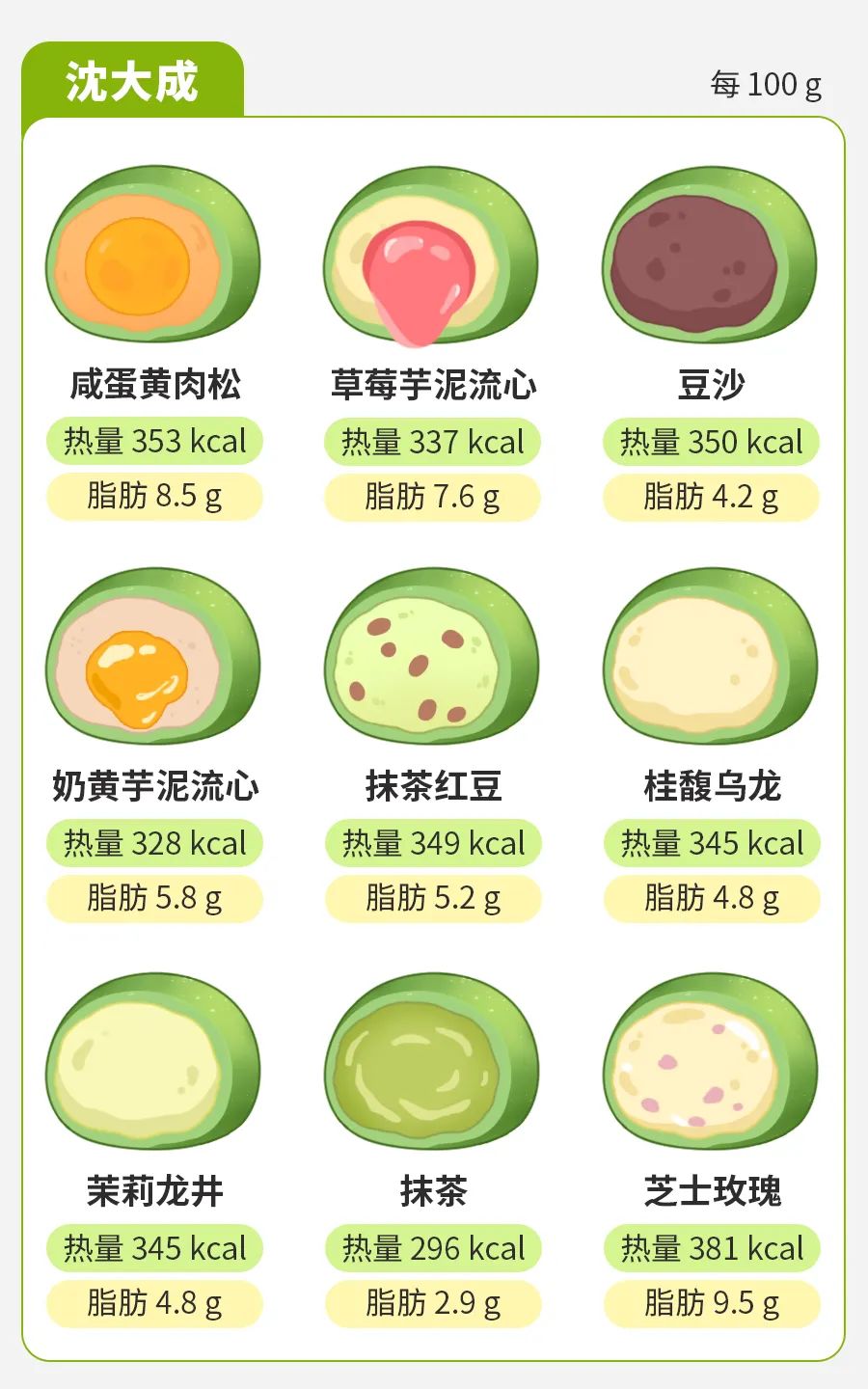
Even homemade versions contain significant calories:
- Red bean paste (100g): 198 kcal
- Salted egg yolk version (100g): 412 kcal
Main reasons:
- Oil coating for soft texture
- Traditional lard usage
- Sugar/oil in fillings
5. Healthy Eating Guide
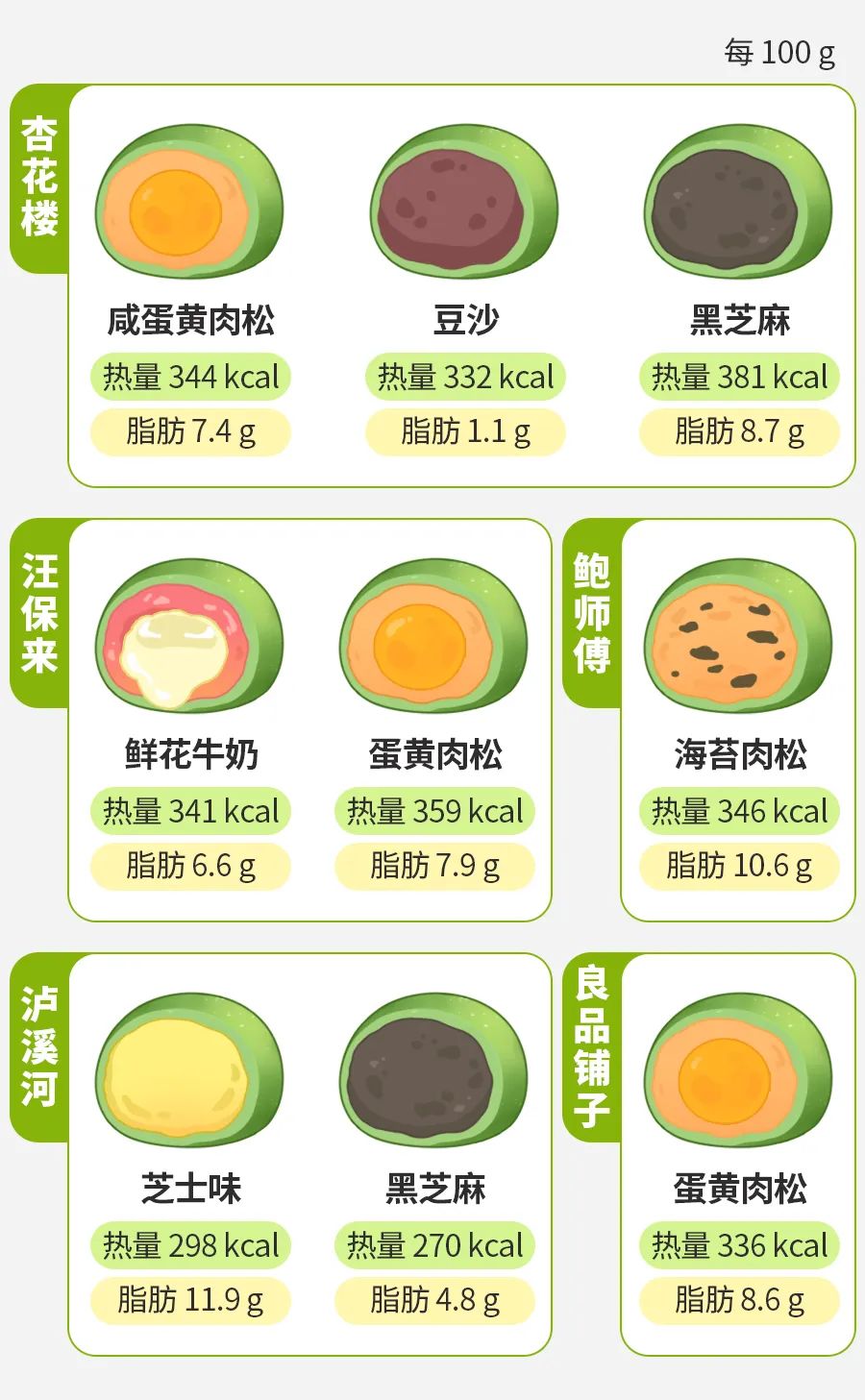
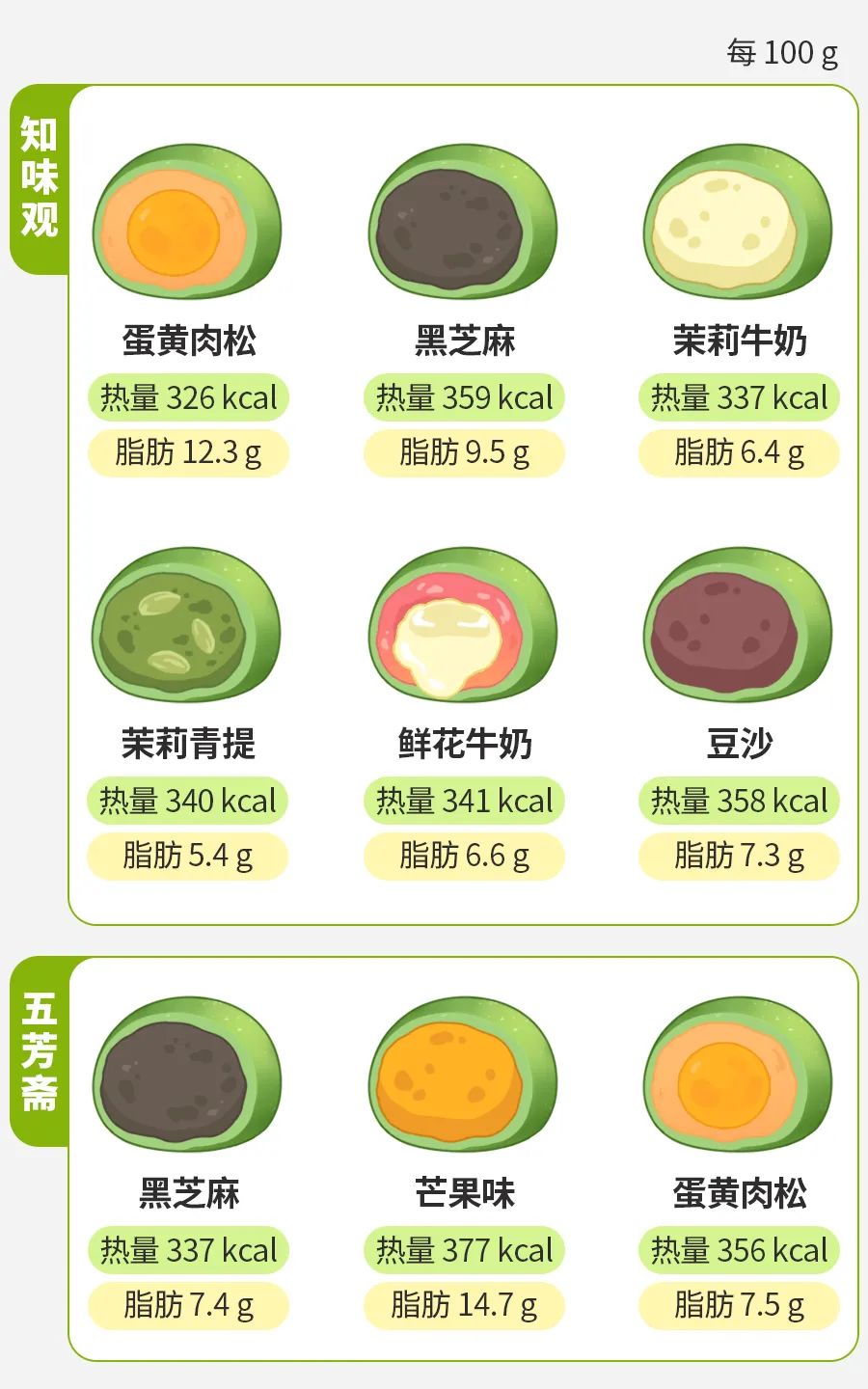
5.1 Portion Control
Adults: max 2 pieces (120g) | Children/elderly: 1 piece
5.2 Pairing Tips
- Eat veggies/protein first
- Pair with light soup
- Avoid greasy dishes
5.3 Special Groups
| Group | Recommendation |
|---|---|
| Diabetics | Choose savory, 1 serving max |
| Sensitive stomachs | Eat warm, chew thoroughly |
| Dieters | Count as main meal portion |
6. Scientific Storage Methods
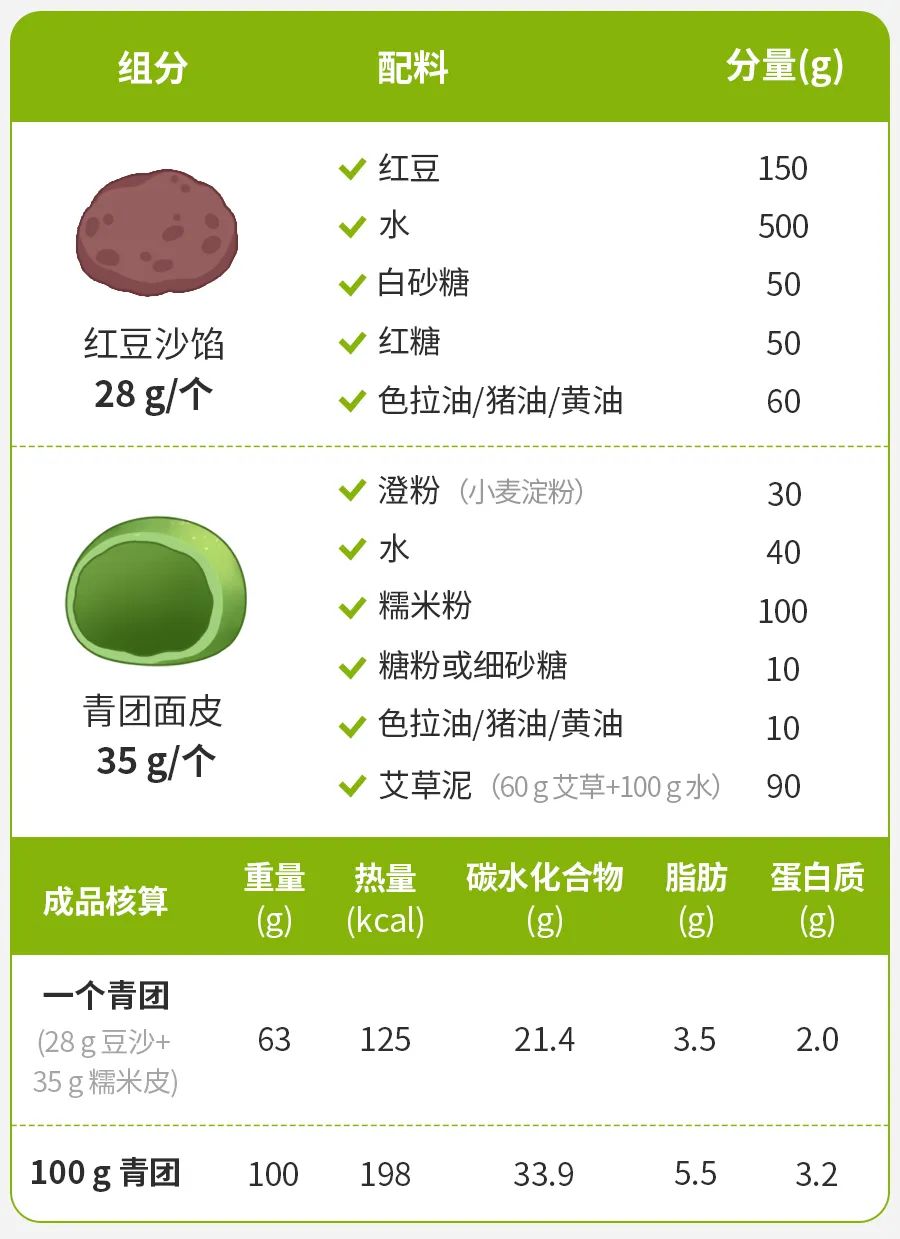
Optimal storage:
- Refrigerate: consume within 3 days
- Freeze: up to 1 month
Reheating tips:
- Steam: 5 minutes post-boil
- Microwave: damp paper towel + 30 seconds
Conclusion: Savor Wisely
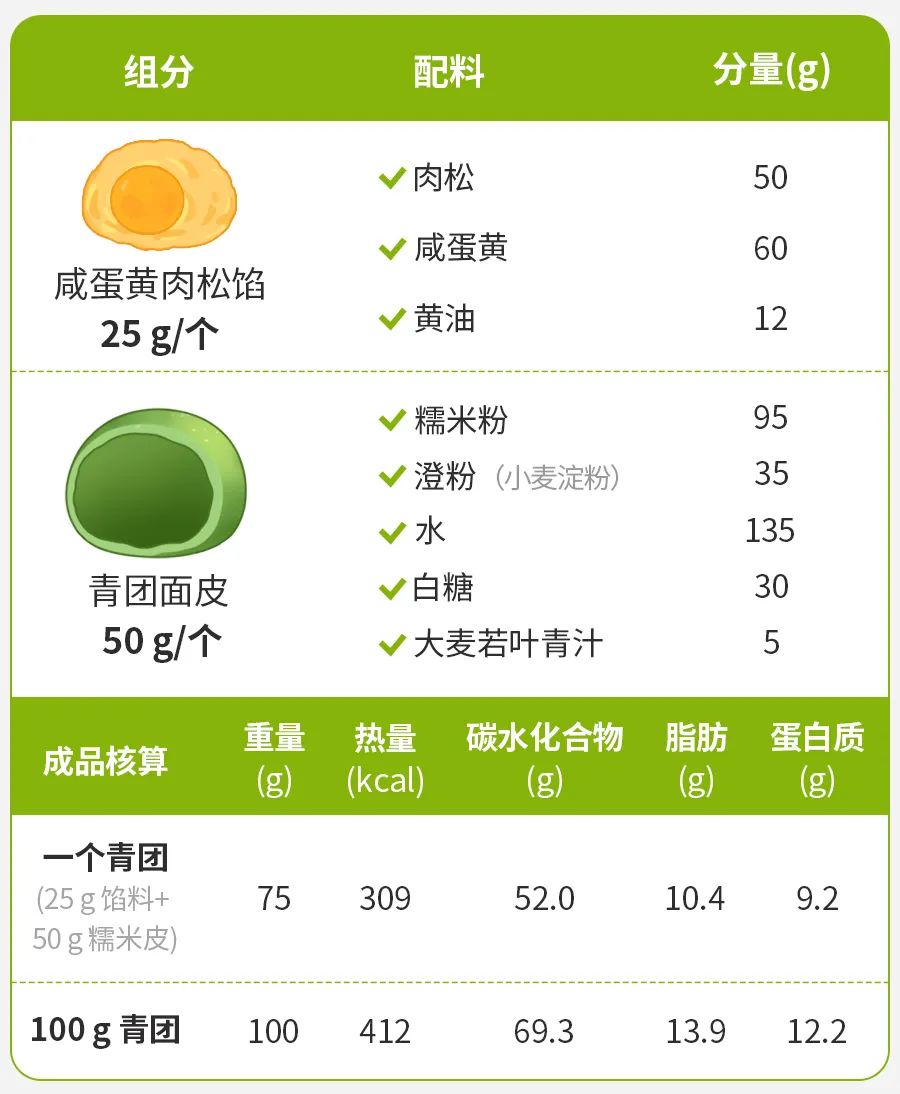
As a seasonal cultural treasure, moderate qingtuan consumption need not induce guilt. Key principles:
- Understand food characteristics
- Control frequency/portions
- Master smart pairing methods
This Qingming Festival, share both qingtuan and these insights with loved ones. Wise enjoyment is the true inheritance of food culture.
